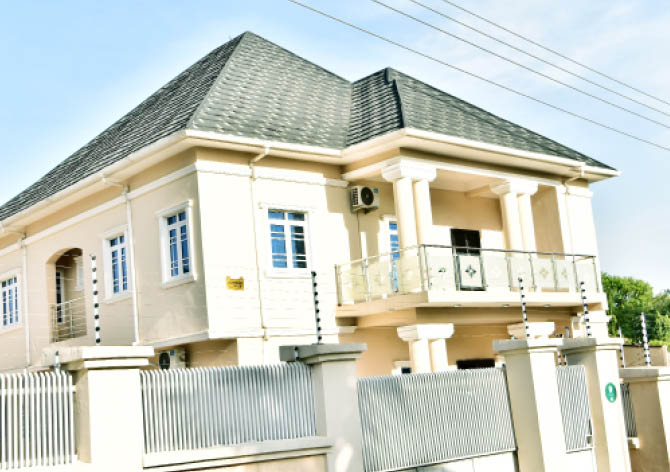Abuja is an amazing property hub and which holds momentous opportunities for real estate developers and investors.
Globally acclaimed as a haven for storing wealth, property business has continued to blossom in Abuja, just as the city continues to grow at an unimaginable pace both in physical expansion and population.
- Don’t turn forests to burial grounds, Ogun govt tells settlers
- 2 undergraduate siblings among 11 killed in Kogi explosion
The FCT chapter Chairman of the Real Estate Developers Association of Nigeria (REDAN), Andy Elerewe, said that the Abuja property market was worth over N2tn, noting that it had the potential to continue growing.
The federal capital city is divided into phases, with phases one to four in place and the process of carving out phase five underway.
Phases one and two house the highbrow and some of the more established districts; but the districts in phases three and four are still up and coming.
The city has over 30 districts, with all of them witnessing incredible construction activities, but according to Nasiru Ibrahim, an estate developer, five districts stand out when it comes to offering high return on investment in the property market.
Ibrahim, an architect and Managing Partner at Black Orchard Group, a fast-growing real estate development company in Abuja, defined return on investment as, “The net difference between the cost of your investment and the final value.”
He said the elitist districts of Asokoro, Maitama and Wuse II, with their high-end property niche, looked glamorous and attractive but that they often do not yield high returns.
He explained that, “The most expensive locations might not have room for growth anymore and the cheapest locations might have room for growth, but they come with a lot of risks. It might take a long time and you have to take certain risks because the locations might not have infrastructure at the moment. So you are left with areas that are somehow in-between. These are areas that have government infrastructure but are at the same time not well populated.
Jahi: Abuja’s hidden property treasure
Jahi is an upcoming district tucked in the warm embrace of Abuja’s uptown borough providing young entrepreneurs and working class the opportunity to live luxurious lifestyles in a serene environment akin to those of Maitama and Asokoro.
Though not fully developed, the new houses, mostly apartment buildings, with exquisite architectural designs adorning the paved roads, give Jahi its stamp of modernity which holds a promise of contented, urbane living.
A fast-developing district, Jahi is located in phase two and positioned to the North East of the city centre. The serene neighbourhood is bordered on the West by the socially and commercially vibrant Gwarimpa Estate, while Kado and Jabi sit South.
Ibrahim said the quality infrastructure provided by the Federal Capital Territory Administration (FCTA) there made it “something like a green field or a virgin territory for investment with the hope that in a short period you will get return on investment.”
Idu: The railway district
Idu’s potential for offering high return on investment in the property market is to an extent defined by the interchange rail station. The Idu station interchanges between the standard gauge railway and the light rail, with the standard gauge running from Abuja to Kaduna, and the Abuja light rail running from the Abuja airport to the Central Business District (CBD).
Located in phase four, Idu is also the industrial hub of Abuja and it boasts of high quality infrastructure and thus has prospects for property investment.
Bordered by Life Camp from the North, Karmo to the East and the industrial area lying South, the railway district is fast becoming a destination of choice for investors.
Ibrahim said, “Another district that has similar potential is Idu; that district has infrastructure and some residential property coming up around there; so it has room for improvement.”
Garki: Abuja’s commercial neighbourhood
The Garki District being in phase one is established, busy and densely built. Lying South of the CBD and bordered on the East by Asokoro, North by Wuse and West by Durumi and Apo, Garki assumes the status of Abuja’s commercial neighbourhood. It boasts of markets, financial institutions and offers mid-level residential and commercial property.
Specifically, Ibrahim said the potential of Garki lay in remodelling of the old property there, and that its proximity and access to the city centre, markets and other facilities made it more attractive.
Wuse: The work, leisure district
Looking for a neighbourhood where to live, work or do business and still catch fun, then look no farther as Wuse offers just that.
Wuse District which has a number of zones is an exciting proposition for business, leisure and decent living. It is a prime location with premium office spaces, hotels, nightclubs, shopping malls, cinemas and recreational parks.
A phase one neighbourhood, it is fully developed and offers both high-end and mid-level property niches. It is warmly ensconced in the embraces of Maitama, CBD, Garki, Wuye, Utako and Mabushi districts.
Ibrahim, however, said zones one and two were the most lucrative in terms of investment, but not without remodelling of the property there.
He explained that, “The established districts also have some potential. Example, the old districts of Garki, Wuse Zone 1, Wuse Zone 2; they still have some property there that can offer high return on investment, especially if you are remodelling them.”
Karmo: A promising property hotspot
Karmo, a phase three district, holds a lot of promise for real estate development and investment. Its growth is fast-paced both in the volume of real estate activities and population.
It offers a variety of residential developments, as well as commercial, and would be hosting one of the biggest modern markets in the city.
Infrastructure in Karmo is being developed to optimum standard and it is widely regarded by experts as one of Abuja’s hotspots which will return high yield on investment.
Ibrahim noted that what stood out the five districts was that they were all planned and covered by the Abuja Geographical Information System (AGIS).
He stressed that the documentation from AGIS, a Certificate of Occupancy (Cof O) and a Right of Occupancy (RofO) significantly impacted on the value of property.
According to the Real Estate Global Market 2022, growth in the sector is expected to increase from $3386.11bn in 2021 to $3741.06bn in 2022 at a Compound Annual Growth Rate (CAGR) of 10.5 per cent, and that the market is expected to reach $5388.87bn in 2026.

 Join Daily Trust WhatsApp Community For Quick Access To News and Happenings Around You.
Join Daily Trust WhatsApp Community For Quick Access To News and Happenings Around You.


